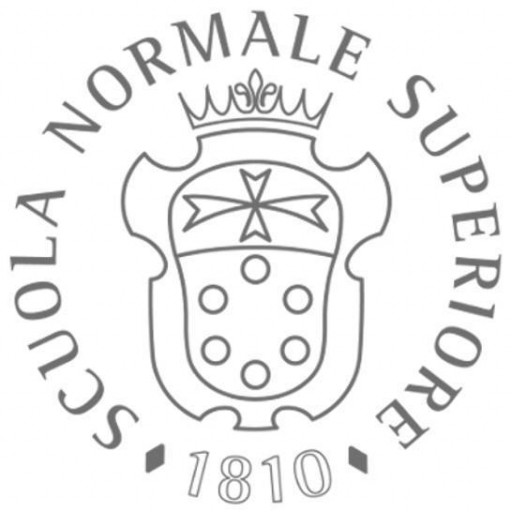Photos of university / #oxford_uni
The Undergraduate Degree in Geology at the University of Oxford offers a comprehensive and rigorous exploration of the Earth's physical structure, materials, and processes. This programme provides students with a solid foundation in the core scientific principles underpinning geology, including mineralogy, petrology, structural geology, tectonics, geophysics, and paleoenvironmental studies. Students will engage in a blend of theoretical coursework, practical laboratory work, and field-based research, enabling them to develop both analytical and problem-solving skills essential for understanding Earth's history and ongoing geological processes.
Throughout the course, students will study the formation and evolution of rocks and minerals, the dynamics of plate tectonics, geological mapping, and the interpretation of geological data through modern techniques such as remote sensing and geophysical surveys. The programme emphasizes the importance of sustainable resource management and environmental considerations, preparing graduates for careers in natural resource exploration, environmental consultancy, academia, and beyond.
The curriculum is designed to foster critical thinking, scientific inquiry, and independent research skills. Students will have the opportunity to participate in field trips within the UK and internationally, gaining valuable hands-on experience and practical skills in geological surveying and sampling. The close proximity to Oxford’s world-class research facilities and faculty experts ensures an inspiring academic environment in which students can thrive.
Graduates of the Geology programme at Oxford will be well-equipped to pursue postgraduate studies or enter professional roles in geology, mineral exploration, environmental sciences, and geological consultancy. The programme also aims to instill a deep appreciation for the importance of geology in addressing global challenges related to natural resources, environmental change, and climate issues. With a strong emphasis on academic excellence, scientific rigor, and practical application, the Oxford Geology degree prepares students to become innovative and responsible scientists and leaders in their field.
During years 1–3, your work is divided between lectures, tutorials, and practical classes. In year 4 you have the opportunity for independent work on special topics or in a research laboratory.
| 1st year | |
|
Courses Students take all courses in five parallel streams:
Field courses
|
Assessment First University Examinations: Theory and Practical |
| 2nd year | |
|
Courses Students take all courses in five parallel streams:
Field courses
|
Assessment Part A1 Examinations: Theory and Practical |
| 3rd year | |
|
Courses Students take a combination of core and optional papers from the following:
Field courses
Independent field mapping project (conducted over summer break between 2nd and 3rd years) |
Assessment Part A2 Examinations: Theory, Practical for Field course: BA Hons (Geology) |
| 4th year | |
|
Research Students choose four options (out of eight to ten); generally two in each term:
|
Assessment Part B Examination: (Theory) MEarthSc Hons (Earth Science |
- Attestat o Srednam Obrazovanii (Certificate of Secondary Education) would not be sufficient for candidates to make a competitive application. If your qualification is listed as being insufficient to make a competitive application to Oxford, then you will need to undertake further study if you wish to apply.You could take British A-levels (the British Council may know where you can take A-levels in your country), the International Baccalaureate (IB), or any other qualifications listed as acceptable on this page. The first year of a bachelor's degree from another university could also be an acceptable alternative.
- IELTS: overall score of 7.0 (with at least 7.0 in each of the four components)
- TOEFL (paper-based): overall score of 600 with a Test of Written English score of 5.5
- TOEFL (internet-based): overall score of 110 with component scores of at least: Listening 22, Reading 24, Speaking 25, and Writing 24.
- Cambridge English: Advanced, also known as the Certificate of Advanced English (CAE): grade A if taken before January 2015, or a score of at least 185.
- Cambridge English: Proficiency, also known as the Certificate of Proficiency in English (CPE): grade B if taken before January 2015, or a score of at least 185.
- English Language GCSE, or O-level: grade B (for IGCSE, please see below)
- International Baccalaureate Standard Level (SL): score of 5 in English (as Language A or B)
- European Baccalaureate: score of 70% in English.
Hill Foundation Scholarship
Russian nationals wishing to study for a second undergraduate degree.
Palgrave Brown Scholarship
Students must be ordinarily resident in and/or educated in the following countries:
Albania; Armenia; Azerbaijan; Belarus; Bosnia and Herzegovina; Bulgaria; Croatia; Czech Republic; Estonia; Georgia; Hungary; Kazakhstan; Kyrgyz Rep.; Latvia; Lithuania; Macedonia; Moldova; Montenegro; Poland; Romania; Russia; Serbia; Slovakia; Slovenia; Tajikistan; Turkmenistan; Ukraine; Uzbekistan.
The Undergraduate Degree Programme in Geology at the University of Oxford offers students a comprehensive curriculum that explores the Earth's physical structure, processes, and materials. The programme provides an in-depth understanding of Earth's formation, the dynamic processes that shape its surface, and the varied materials that constitute its crust and mantle. Students have the opportunity to study a broad spectrum of subjects, including mineralogy, paleontology, sedimentology, structural geology, and geomorphology, among others. The course emphasizes both theoretical knowledge and practical skills, integrating rigorous laboratory work, field studies, and computational techniques. Students are encouraged to develop critical thinking, problem-solving abilities, and an appreciation for the relevance of geology in addressing real-world challenges such as natural resource management, environmental change, and geological hazards. The programme is designed to be challenging and enriching, preparing graduates for careers in academia, research, environmental consultancy, natural resource exploration, and government agencies. Throughout their studies, students benefit from the university’s distinguished faculty, state-of-the-art laboratories, and access to extensive geological field sites across the UK and internationally. The course typically spans three or four years, depending on the chosen track, and includes opportunities for research projects, internships, and collaboration with industry partners. Graduates of the Oxford Geology programme emerge with a strong scientific foundation, practical experience, and a global perspective, making them well-equipped to contribute to scientific advancement and societal well-being.








